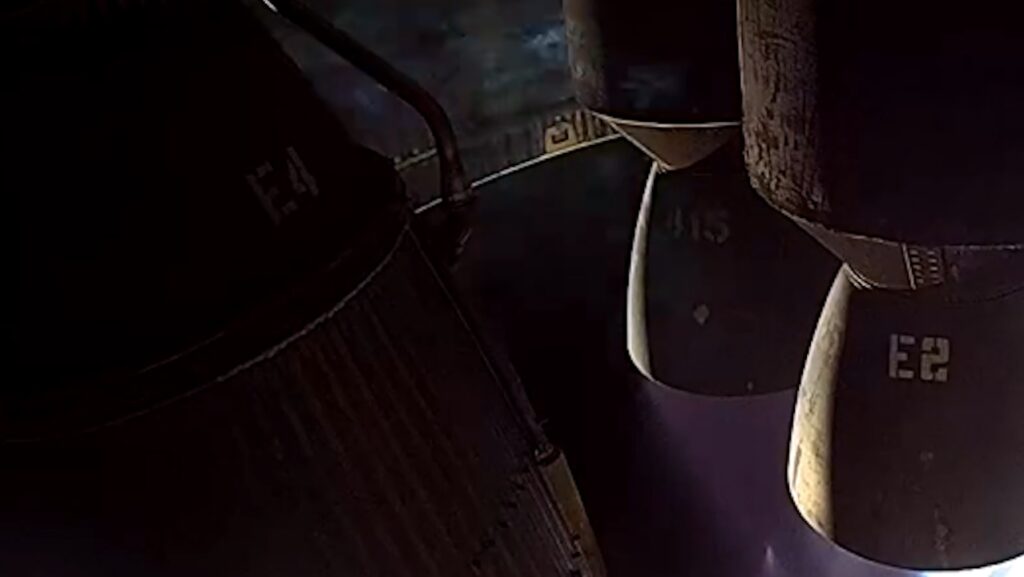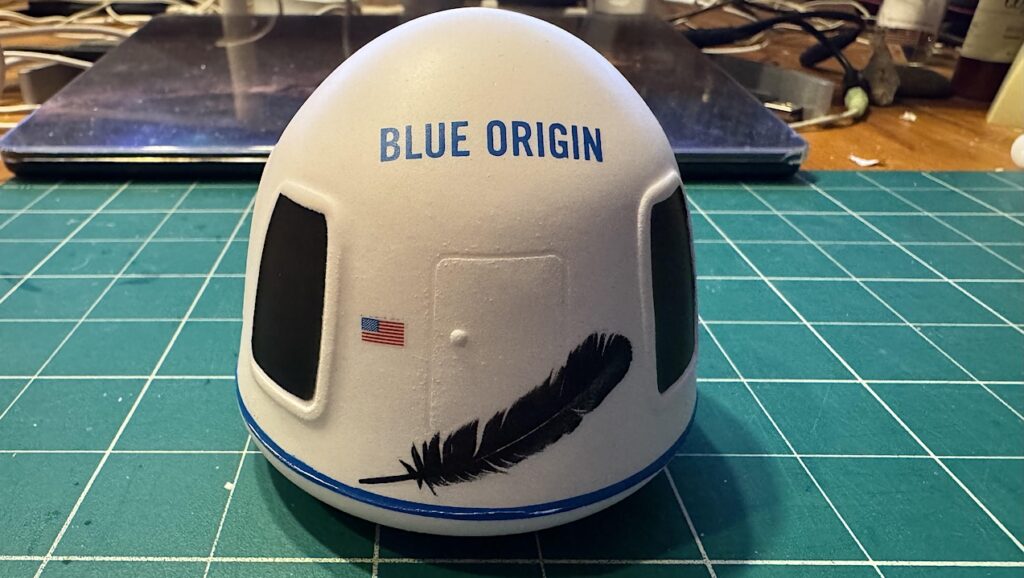The Space Launch Paradigm Shift

Without NASA there would be no SpaceX and its brilliant boat landing, Ars Technica
“It’s not clear how long this happy relationship between SpaceX and NASA will last. The company may fly its Falcon Heavy rocket late this year or in 2017, and although it doesn’t have quite the payload capacity that NASA’s under-development Space Launch System does, it will cost far less to fly. The next president, or some in Congress, may begin asking why NASA is spending billions to develop its own heavy-lift rocket when SpaceX already has one. But on Friday night it was all good. Across NASA’s field centers, in cubicles, offices, and coffee rooms, the engineers working on various projects were watching. As one young flight controller from Johnson Space Center told me about her experience, “There were about 20 people crowded around my screen, and we were all going nuts.” Elon Musk hasn’t forgotten NASA, either. The first thing he did during Friday’s news conference was to thank the space agency that had made it all possible.”









We certainly live in interesting times.
Should get more interesting in September when Musk discusses their Mars architecture in.Guadalajara. It’s one thing to compare the Falcon Heavy/Dragon 2 to SLS/Orion, but BFR/BFS are another kettle of fish. I wouldn’t be surprised if alternate uses for them arose.
I’m sure you could use it to launch very large space telescopes, large deployable parabolic space structures, and the like.
I would be utterly flabbergasted if alternate uses for BFR-MCT did not arise. Falcon Heavy, particularly if it gets a Raptor-powered upper stage and large payload fairing later this decade, could go a long way toward enabling an economical return to the Moon. But BFR-MCT would probably enable much-accelerated deployment of lunar orbital and surface infrastructure of more than token size.
Yes good point Keith. But will NASA generally be unhappy if that does occur and SLS and or Orion are cancelled? My take, perhaps not given that they didn’t want it in the first place and it’s preventing them from investing in other programs such as their R&D.
Congress may have other thoughts though.
Cheers
Hilarious that he calls Bolden a “steady ally” of SpaceX. Obviously he has been dragged into this kicking and screaming by the White House. All this success is in spite of him, not because of him. He has fought behind the scenes to get back to contracts vs. space act agreements and favors the big companies. His testimony and speeches are scripted and while he is getting more comfortable publicly supporting the concepts, it is clear he wants it to end here and just have government do Mars.
“He has fought behind the scenes to get back to contracts vs. space act agreements and favors the big companies.”
Interesting comment. Do you have any source for that?
Bolden works for two bosses. He answers to both the President and Congress, who have followed different agendas regarding NASA ever since Obama cancelled Constellation. So if it looks like he talks out both sides of his mouth it is because of that. His job comes from the President, but his project funding comes from Congress. If he disobeys Congress on where he spends NASA money then he breaks the law (or loses funding).
I’ve been saying this since SLS and Orion were announced; kill both of these billion dollar wastes and give Space X and ULA the money they need so NASA can just rent the craft from them.
We’re part of the way to replacing Orion with Commercial Crew (the Orion program just doesn’t realize yet that it is a “dead man walking”). Now if only NASA would cancel SLS and replace it with Commercial HLV, we’d be golden. An open competition between the likes of ULA, SpaceX, Orbital ATK, and Blue Origin to field two operational HLVs would be truly epic, and still cost far less than SLS.
Congress kills programs .. they control the checkbook.
Agreed, and SLS has a lot of support on Congress and saving money isn’t really the goal of SLS.
Correct. The first purpose of SLS is to keep the shuttle fleet infrastructure employees working and not loose them. Their expertise is a valuable asset. Kind of expensive though.
I think an unspoken purpose of SLS is as a Congressionally funded test program for Commercial Crew, but that is speculation on my part.
THIS Congress and NASA director laugh about SpaceX going to Mars ahead of SLS. We’ll see. Falcon Heavy will fly first, most, and for a lot less. A future Congress might be friendlier to Commercial Mars than this one has been. Not only do I think that SpaceX will beat SLS to Mars, I also think that they might not be the only one. There is still room in SLS’s Mars timeline for some other entity to rise up and join the race. How long did it take SpaceX to get this far?
Most of the contractors with actual hands-on experience on the Shuttle were at KSC and are gone. The purpose of these programs is to provide money for congressional districts in Alabama, Utah, and other locations.
I knew that, but someone somewhere said those shuttle-era workers were the reason for using shuttle hardware.
The claim has been made that “legacy” hardware was more reliable but SFAICT this isn’t well supported by actual experience, since the designs are decades old. The actual political motivation for Congress’ mandating use of legacy hardware seems to have been to ensure that specific contractors would be awarded the bulk of the federal funds. There is only one manufacturer of Shuttle legacy SRBs for example.
NASA does not waste money, they may spend it inefficiently (thanks to various government regulations like FAR) and then abandon a project, but without it SpaceX, Bigellow and lots of other guys would be nowhere near where they are now.
I will agree with part of your statement, that without NASA, SpaceX, Bigelow, etc wouldn’t be were they are today, but NASA does waste money. When you spend money inefficiently and abandon projects after millions/billions spent on them (before their designed mission is over), you’ve wasted money.
I know Congress told NASA to build the SLS and Orion, but it’s still a waste of money considering Dragon 2.0 and Boeing’s Starliner will be operational and have similar compatibilities before Orion ever launches. Then, you have to maintain all the facilities and personal to build those vehicles for years when nothing is happening at the current planned launch rate.
“…but without it SpaceX, Bigellow and lots of other guys would be nowhere near where they are now.” There is really no way you could know that.
Just ask Elon. He’s repeated it many times.
SpaceX, Bigelow, et al, have indeed gotten their starts off NASA’s (and DoD’s) space legacy – in both cases by starting with things these two agencies had previously put on their respective scrapheaps. But NASA, in particular, is losing steam.
Both SpaceX and Bigelow have taken NASA (and DoD) originated technology and improved it and made it more economical. As SpaceX spectacularly demonstrated on its CRS-8 mission a few days ago, it has long since gotten to a point where what it does is genuinely ground-breaking and owes little or nothing to past NASA (or DoD) efforts.
If NASA was still cranking out new technology at the rate it did in the 60’s, it would still be a vital part of this nation’s space effort. But it is becoming less so all the time.
No one at any of the New Space companies, for instance, seems the least bit interested in borrowing any technology from SLS or Orion. These are the things NASA is doing now. What it did in The Good Old Days, has largely been absorbed by New Space, but little it has done lately is on anyone’s “must have” list.
Absent a top-to-bottom reformation imposed from outside, NASA will be all but irrelevant to U.S. space efforts a decade hence.
A little myopic. NASA’s portfolio is wider than building rockets, although that’s what gets the drumbeat of press.
Yet billions that were requested by the Obama administration for technology development were transferred to the SLS/Orion program.
“…it has long since gotten to a point where what it does is genuinely
ground-breaking and owes little or nothing to past NASA (or DoD) efforts…”
Yeah-right, nothing except every single system on the vehicle and all the research that went into those technologies. If it wasn’t for NASA and DoD, we would still be playing with bottlerockets.
I think that is how it will play out in the end. Even if NASA doesn’t pay SpaceX to fly to Mars, SpaceX and ULA are NASA partners, with both former NASA employees and access to NASA’s tech database, so both of them know how to get there and would have NASA’s technology help, with or without NASA’s money.
But I don’t think ULA will go, or even develop the ability to go, without being paid for it. SpaceX on the other hand will prefer to get paid to go, but will develop the ability either way. If nobody steps up, they’ll just go land Red Dragon, go land Elon’s Greenhouse, go land some Bigelow habitats some CO2 splitters and some methane fuel synthesisers. Then they’ll say, “Next launch window we’ll take researchers…who’s comin’?”. NASA will take that deal, as will ESA, JAXA, ROSCosmos and who knows who all else. It’ll cost something astonishingly low. Even if it costs 7 or 8 digits per person, every organization with that amount of money and a reason to set up shop on Mars will jump at it.
For ULA it is “Show Me the Money”. For SpaceX it is “Field of Dreams”.
The Commercial Space effort has almost reached critical mass anyway. Plus, ALL NASA partners get help from NASA if they are making progress on projects that NASA likes…even if they don’t get NASA money. That will never change.
If NASA continues on their current timeline their astronauts will already have habitats to stay in…and folks to greet them…when they finally arrive on Mars. 😉